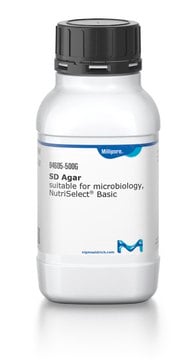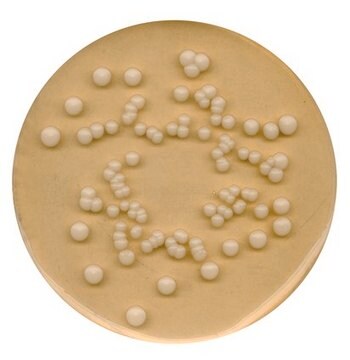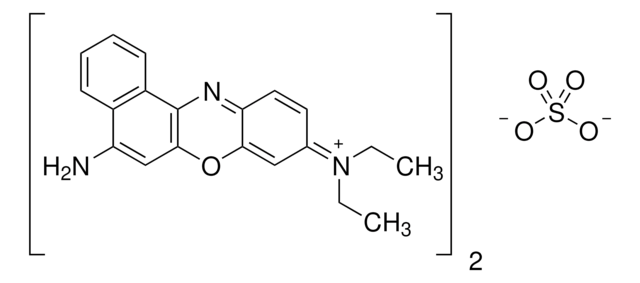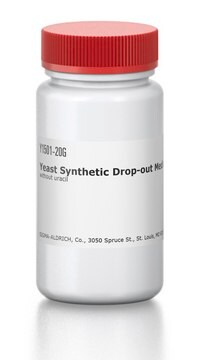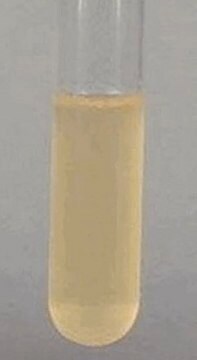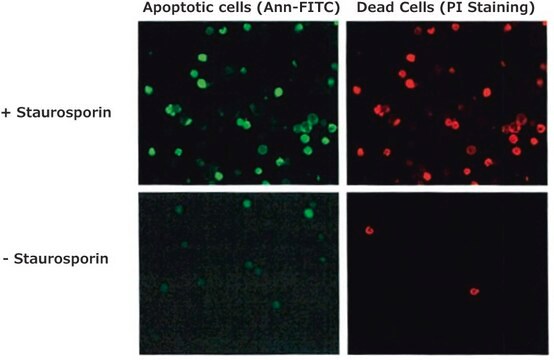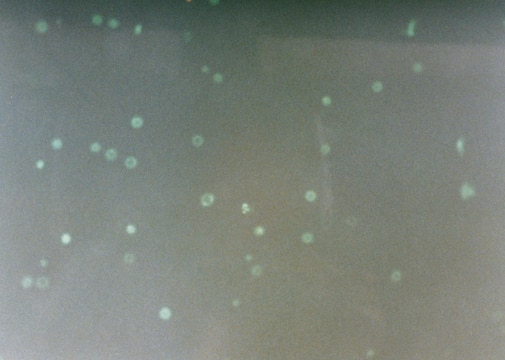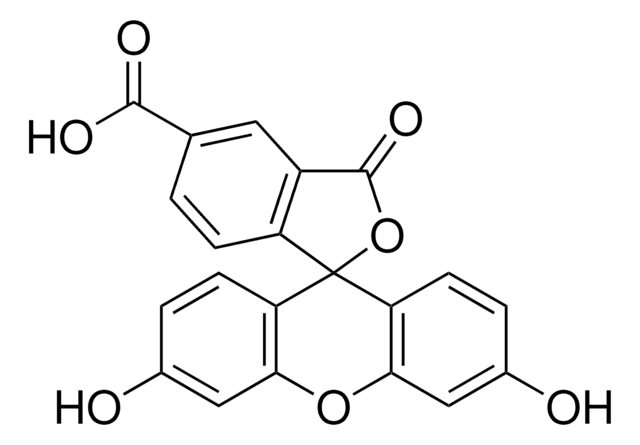A9400
7-Aminoactinomycin D
~97% (HPLC), powder, fluorescent DNA stain
Synonym(s):
7-AAD
About This Item
Recommended Products
Product Name
7-Aminoactinomycin D, ~97% (HPLC), powder
Assay
~97% (HPLC)
Quality Level
form
powder
color
red to very dark purple
antibiotic activity spectrum
neoplastics
Mode of action
DNA synthesis | interferes
storage temp.
2-8°C
SMILES string
CC(C)[C@H]1NC(=O)[C@@H](NC(=O)c2cc(N)c(C)c3OC4=C(C)C(=O)C(N)=C(C(=O)N[C@H]5[C@@H](C)OC(=O)[C@@H](C(C)C)N(C)C(=O)CN(C)C(=O)[C@@H]6CCCN6C(=O)[C@H](NC5=O)C(C)C)C4=Nc23)[C@@H](C)OC(=O)[C@H](C(C)C)N(C)C(=O)CN(C)C(=O)[C@@H]7CCCN7C1=O
InChI
1S/C62H87N13O16/c1-26(2)42-59(85)74-21-17-19-36(74)57(83)70(13)24-38(76)72(15)48(28(5)6)61(87)89-32(11)44(55(81)66-42)68-53(79)34-23-35(63)30(9)51-46(34)65-47-40(41(64)50(78)31(10)52(47)91-51)54(80)69-45-33(12)90-62(88)49(29(7)8)73(16)39(77)25-71(14)58(84)37-20-18-22-75(37)60(86)43(27(3)4)67-56(45)82/h23,26-29,32-33,36-37,42-45,48-49H,17-22,24-25,63-64H2,1-16H3,(H,66,81)(H,67,82)(H,68,79)(H,69,80)/t32-,33-,36+,37+,42-,43-,44+,45+,48+,49?/m1/s1
InChI key
YXHLJMWYDTXDHS-SGILFZQNSA-N
Looking for similar products? Visit Product Comparison Guide
General description
Application
- for nuclei visualization in mouse tail skin
- as a nuclear stain in imaging flow cytometry for nucleus-protein colocalization
- in flow cytometry to determine the level of CD16 (Fc gamma III receptor) and CD32 (Fc gamma II receptor) in epidermal cells
Features and Benefits
Signal Word
Danger
Hazard Statements
Precautionary Statements
Hazard Classifications
Acute Tox. 2 Oral
Storage Class Code
6.1A - Combustible acute toxic Cat. 1 and 2 / very toxic hazardous materials
WGK
WGK 3
Flash Point(F)
Not applicable
Flash Point(C)
Not applicable
Personal Protective Equipment
Choose from one of the most recent versions:
Already Own This Product?
Find documentation for the products that you have recently purchased in the Document Library.
Customers Also Viewed
Related Content
Apoptosis, or programmed cell death (PCD), is a selective process for the removal of unnecessary, infected or transformed cells in various biological systems. As it plays a role in the homeostasis of multicellular organisms, apoptosis is tightly regulated through two principal pathways by a number of regulatory and effector molecules.
n proliferating cells, the cell cycle consists of four phases. Gap 1 (G1) is the interval between mitosis and DNA replication that is characterized by cell growth. Replication of DNA occurs during the synthesis (S) phase, which is followed by a second gap phase (G2) during which growth and preparation for cell division occurs. Together, these three stages comprise the interphase phase of the cell cycle. Interphase is followed by the mitotic (M) phase.
Our team of scientists has experience in all areas of research including Life Science, Material Science, Chemical Synthesis, Chromatography, Analytical and many others.
Contact Technical Service
